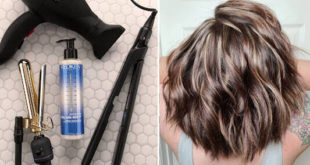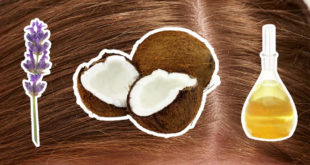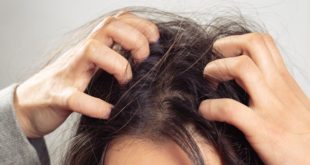Introduction:
Frizzy hair can be a problem for people with all hair types. For smooth, manageable hair, it is important to understand the causes of frizz. You can also use effective styling techniques and remedies. This comprehensive guide will explore the science behind frizz and the factors that contribute to its occurrence. We’ll also provide solutions to help you achieve a frizz free mane. Many people struggle with frizzy hair, which can turn a great hair day into an unpleasant experience. Anyone who wants to control their frizzy hair must first understand the causes. This comprehensive guide will explore the science of frizz and dissect the factors that cause this hair problem.

The Science of Frizz –
Frizz is not just a cosmetic problem. It’s caused by the structure of hair and its response to environmental factors. . It’s composed of cells that overlap, like shingles on a roofing. Moisture can enter the shaft of the hair when the cuticle lifts. This causes it to swell, and cause frizz. Understanding the science behind frizz is essential to effectively preventing and treating it.
The Science behind Frizz
The first step to addressing frizz in your hair is to understand the science behind it. The outer layer of hair (the cuticle) becomes raised and allows moisture to enter, which causes frizz. Frizzy hair is characterized by its characteristic unruly and rough texture. Frizz is exacerbated by factors such as damage, humidity and hair porosity.
Causes of frizzy hair:
Frizz is caused by a variety of factors. We will explore the common causes of frizz, such as humidity, lack moisture, heat damage and harsh hair products. It is important to identify these triggers in order to implement targeted solutions that will combat frizz.
Remedy for Frizzy Hair:
This section provides an in-depth analysis of effective remedies for frizzy, tangled hair. We’ll examine a variety of options, from nourishing oils and hair masks to professional salon treatments. These will help restore moisture, strengthen hair shafts, and smooth cuticles. We will also discuss lifestyle changes and dietary factors that can promote overall hair health.
Best products for frizzy hair:
It can be difficult to navigate the wide variety of hair care products. This section will review and recommend specific styling products, shampoos and conditioners that are designed to fight frizz. In order to create an effective hair care regimen, it is important to understand the ingredients and select products that are tailored for your hair type.
Heat styling without the frizz:
This section provides tips and techniques for those who enjoy styling their hair using heat tools to achieve sleek, polished styles without exacerbating the frizz. We’ll go over the basics of heat styling frizz-prone locks, from selecting the right tools to using heat protectorants.
Natural Hair Styling Tips:
Natural hairstyles are a great way to control frizz and celebrate your unique hair texture. We will explore natural styling techniques, such as protective hairstyles and braids. These tips not only help control frizz, but also enhance your natural curls and waves.
Salon Treatments For Frizzy Hair:
This section is for individuals who are looking for professional solutions to frizz. We’ll cover everything from Brazilian blowouts to keratin treatments.
Frizz and hair porosity:
Understanding the porosity of your hair is key to fighting frizz. We will explain hair porosity, and how it affects the absorption moisture. This will help you customize your hair care regimen to address frizz according to your unique hair porosity.
Frizz control and Dietary Habits:
This section will examine the relationship between nutrition and hair. A diet high in vitamins, antioxidants, and minerals can help to strengthen hair, making it more resistant, while reducing frizz. We will identify the key nutrients and foods which promote hair health.
Lifestyle Changes for Frizz-Free hair:
Frizz control can be improved by lifestyle changes, not just products or treatments. We will discuss factors like sleep habits, stress management and environmental considerations to provide insights into holistic ways of maintaining smooth, manageable hair.
DIY Frizz-Fighting Recipes:
This section is for those who are looking for natural, DIY solutions. It will include homemade recipes of hair masks and serums. These recipes are made with readily available ingredients that nourish and hydrate hair to promote a smoother texture.
Embracing Your Natural Texture:
Although managing frizz and celebrating your hair texture are important, it is also essential to embrace yourself. This section explores the growing trend of self-acceptance and love in hair care. It encourages individuals to embrace the unique curls or waves they have.
Humidity is a culprit:
Humidity is a major cause of frizzy hair. We will examine how humidity in the air affects hair, particularly for those with hair that is porous. This leads to an expansion of the hair shaft. This section will explain why humidity can cause hair to become frizzy.
Lack Of Moisture:
Contrary to what is commonly believed, frizz doesn’t only affect dry hair. Lack of moisture can be a major cause of frizz. We will explore how frizz can affect both high-porosity and dry hair types, and how finding the right balance of hydration is important.
Heat Damage & Frizz:
Frizz can be caused by excessive heat styling. This section examines how flat irons and curling wands are used frequently to strip hair of natural oils. Frizz is more likely as a result. We will also discuss how to minimize heat damage.
Harsh Hair Products:
Our hair’s overall health is influenced by the products we use. Certain hair care products can strip hair of natural oils. This is especially true for those that contain sulfates or alcohol. We’ll look at the most common frizz-causing products and suggest alternatives.
The Relationship Between Porosity and Frizz:
The ability of hair to absorb and retain water is one key factor that contributes to frizz. We’ll examine the three levels of porosity–lower, normal and higher–and see how they affect the likelihood that you will experience frizz. Understanding the porosity of your hair can help you create a frizz-fighting regimen that is more effective.
Under-washing and Over-washing:
The right hair wash frequency is important for controlling frizz. Overwashing the hair can strip it of its natural oils while under-washing may lead to product accumulation. We will provide you with guidelines for how often you should wash your hair depending on the type of hair and environmental factors.
Solutions to Different Hair Types:
Frizz isn’t a problem that fits all. Different hair types need tailored solutions. This section provides personalized tips to individuals with straight hair, curly hair, or wavy hair. It addresses the unique challenges that each hair texture faces when fighting frizz.
Protective Style to Prevent Frizz:
The right protective styles can make a huge difference in the prevention of frizz. We’ll look at different protective styles, from buns to twists and braids. They will not only protect your hair but also keep it stylish.
Anti-Humectants, Humectants, and Humectants:
It is important to understand the role humectants play in hair care. This section will explore how these ingredients react with hair and the environment. It offers insights on selecting products that are aligned with your frizz-fighting objectives.
Maintaining Healthy Hair Habits:
Adopting healthy hair habits, beyond specific causes is important for preventing frizz. We will discuss the importance regular trimming, deep conditioning and using satin or silk materials for hair accessories. These habits are important for overall hair health, and they also help to reduce frizz.
Dietary factors and frizz:
The health of your hair is influenced by nutrition. This section will examine how a balanced diet rich in vitamins and minerals as well as omega-3 fatty acid can help to create hair that is more manageable. We will identify the key nutrients, and foods that promote optimal health of hair.
Environmental Considerations
Frizz can be exacerbated by environmental factors such as pollution or exposure to harsh weather. We will discuss how to protect your hair against these external stressors, and maintain a frizz resistant mane even in difficult conditions.
Genetics and Frizz:
Genetics can affect your hair type, and how it reacts to different factors. This section explores the role of genes in determining if you are more prone than others to frizz.
DIY Frizz-Fighting Treatments:
This section provides DIY treatments that are easy to access for those who prefer natural remedies. These treatments, which range from homemade hair masks and nourishing oils to smoothing hair and reducing frizz, aim to hydrate, strengthen and hydrate the hair.
Professional Treatments to Reduce Frizz:
If all else fails, professional treatments may provide more intensive solutions to manage frizz. We will discuss popular salon treatments like Brazilian blowouts and keratin treatments, including their effectiveness, side effects, and considerations.
Conclusion:
Frizzy hair has many causes and requires a targeted management approach. This guide provides a complete toolkit to achieve smoother and more manageable hair. It includes everything from understanding the science behind frizz, to customizing solutions for your hair type. You can say goodbye to frizz by adopting a holistic method that takes into account both internal and external variables. To achieve frizz-free locks, you must combine understanding the science behind it, addressing its causes, and using effective remedies and styling methods. You can achieve smoother and more manageable hair by customizing your hair care routine to suit your hair type and lifestyle. The journey to frizz free hair will require a lot of trial and errors, but you can achieve beautiful frizz resistant locks with patience and the correct strategies.



